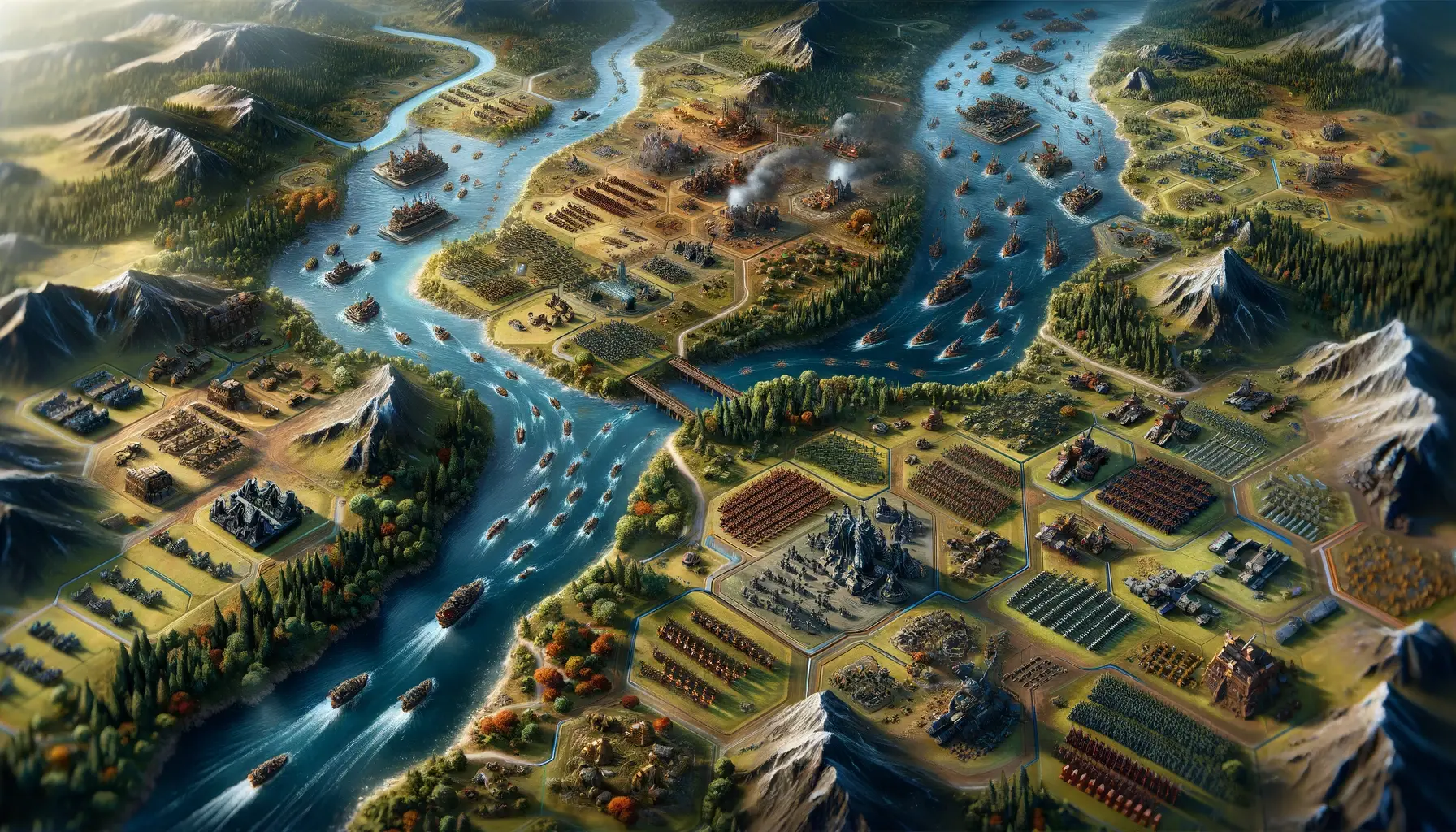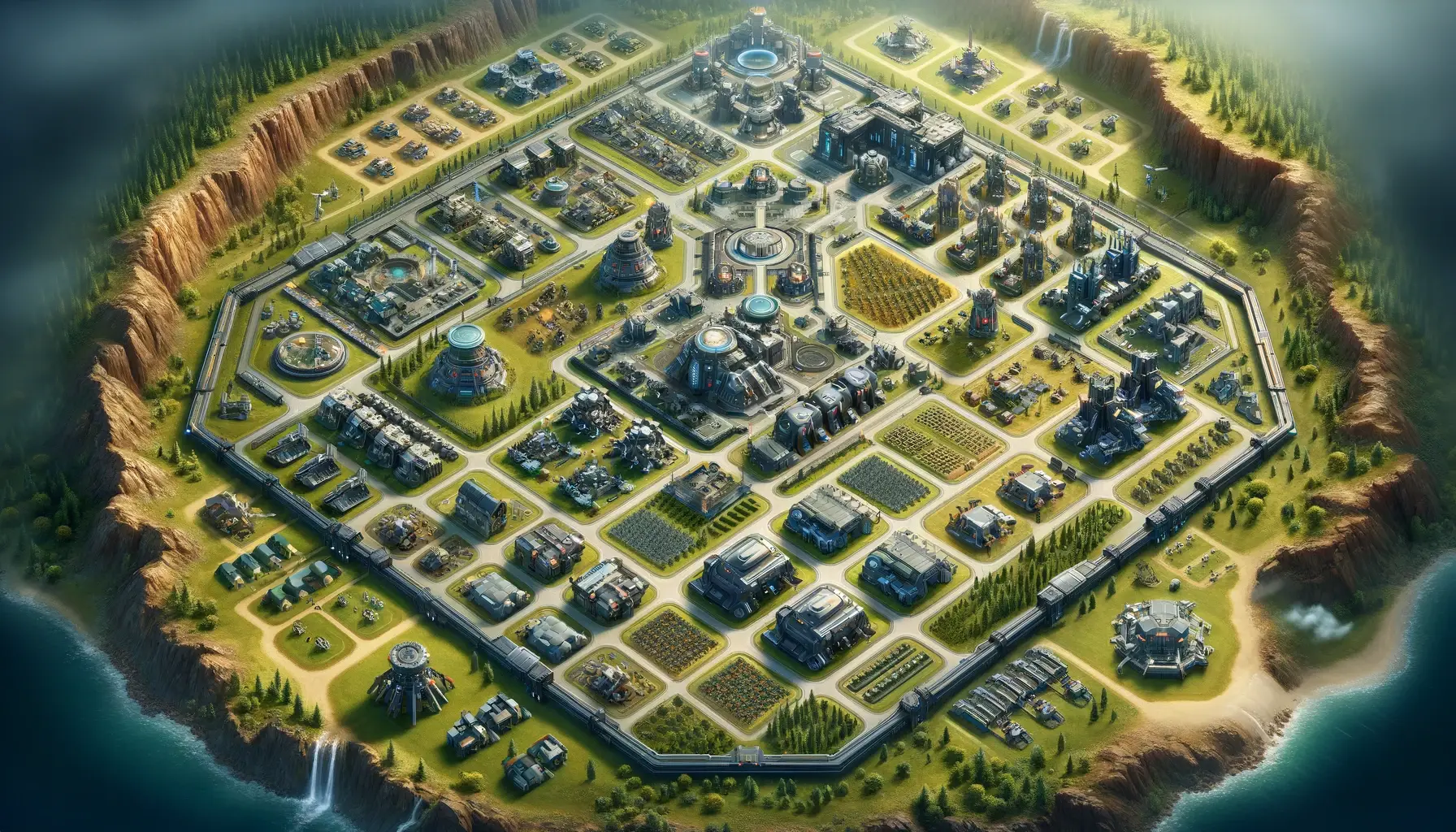Introduction To Real-Time Strategy Mastery
Real-time strategy (RTS) games stand as a monumental pillar in the gaming community, revered for their intense, brain-teasing gameplay and the deep strategic depth they offer. For gamers who relish in orchestrating elaborate strategies, managing resources under pressure, and leading armies to victory or defeat in a dynamic battlefield, RTS games provide a unique and fulfilling challenge. Let’s embark on a journey to elevate your RTS gameplay to new, strategic heights.
Understanding The Fundamentals
The path to mastery in RTS games is built on a solid understanding of fundamental mechanics. Games within this genre, while varied in theme and specific mechanics, share common core elements that are pivotal to success.
Resource Gathering: Virtually every RTS game requires the collection of some form of resources. These are the lifeblood of your empire, funding everything from unit production to technology research. Effective resource management starts with optimizing the efficiency of your gatherers and ensuring a steady flow of materials to support your expanding endeavors.
Unit Production: Knowing what units to produce, and when, is a skill that distinguishes novices from veterans. Each unit type serves a purpose, from frontline infantry to specialized siege equipment. Balancing your forces to meet both defensive and offensive needs while considering resource allocation is a delicate dance that requires practice and insight.
Base Management: Your base is your stronghold, your production hub, and in many games, your lifeline. Effective base layout can streamline unit production, ensure resource security, and provide sturdy defenses against enemy incursions. Understanding the strategic placement of buildings and defenses can significantly impact your gameplay efficiency and resilience against attacks.
Developing Situational Awareness
A common thread among RTS champions is their exceptional situational awareness. This skill is about understanding the implications of every action and reaction within the game.
Map Monitoring: Regularly glancing at the mini-map cannot be overstated in its importance. It allows you to catch enemy movements, scout expansions, and spot attacks before they happen. Learning to effectively read and interpret the mini-map is akin to gaining a sixth sense in the realm of RTS gaming.
Enemy Tracking: Keeping tabs on your opponent's actions, unit composition, and potential strategies is crucial. This doesn’t mean simply reacting to their moves but anticipating them. By understanding the common strategies and their counters, you can prepare your response even before the enemy makes their move.
Opportunity Seizing: Situational awareness also means spotting opportunities. This could be an undefended resource node, a gap in the enemy’s defense, or the perfect moment to strike. The ability to see and exploit these moments can turn the tide of a game.
Mastering Unit Composition And Counters
The rock-paper-scissors dynamic found in the unit composition of RTS games is a fundamental aspect that adds a layer of depth to the strategy.
Understanding Strengths and Weaknesses: Every unit type has its strengths and weaknesses. For instance, heavy infantry may be effective against buildings but slow and vulnerable to aerial attacks. Knowing these dynamics is crucial for assembling an army capable of countering the enemy’s forces effectively.
Adapting to Opponent's Strategies: Flexibility in your unit composition allows you to adapt to your opponent's strategies. If you notice an increase in a particular unit type, producing its counter can give you a significant battlefield advantage.
Synergy Among Units: Beyond individual strengths and weaknesses, consider how units complement each other. Combining units in ways that their strengths cover the others' weaknesses is a hallmark of advanced strategic play.
In the realm of RTS games, knowledge, preparation, and adaptability are your greatest tools. By deeply understanding the game's fundamentals, maintaining acute situational awareness, and mastering the art of unit composition, you set the stage for advanced strategic maneuvers and tactical depth that will challenge any opponent.

Navigating The Crucial Path Of Resource Management
Efficient resource management forms the backbone of your strategy in real-time strategy games. It’s not just about gathering resources but making informed decisions on how to allocate them to maintain a balance between growth, defense, and aggression. Here’s how you can elevate your resource management skills:
Prioritization: Understanding what needs funding first is crucial. Prioritizing resource allocation between expanding your army, upgrading technologies, or building defenses can make or break your strategy. Quick decision-making regarding where your resources go can often lead to a significant advantage over your opponent.
Expansion vs. Conservation: Knowing when to expand your resource collection and when to conserve is a delicate balance. Expanding too quickly can leave you vulnerable to attacks, while being too conservative can starve your war effort of vital resources. The key is to read the game - if your opponent is aggressive, bolster defenses; if they're defensive, consider safely expanding your resource base.
Tech Upgrades: Investing in technology upgrades can significantly improve your resource efficiency, unit strength, and defense capabilities. However, tech upgrades require a substantial upfront resource investment. Balancing the immediate need for units with the long-term benefits of technology upgrades is an art that requires practice and foresight.
Decision-Making: The Heart Of Strategy
In the heat of battle, the ability to make quick, informed decisions sets apart the novices from the strategists. This skill is especially critical in RTS games, where every second counts.
Analyzing the Battlefield: Keep a constant eye on the evolving dynamics of the battlefield. An unexpected enemy movement, a sudden resource scarcity, or an opportunity to strike can appear at any moment. Analyzing these situations quickly and accurately is crucial for making effective decisions.
Flexibility in Strategy: Be prepared to pivot your strategy based on the current state of play. If an initial plan isn't working, adapt and formulate a new one. Stubbornly sticking to a failing strategy is a common pitfall for many players.
Risk Assessment: Every decision in an RTS game carries a certain level of risk. Learning to assess and take calculated risks is a critical skill. Sometimes, a bold move, like a surprise attack or a rapid expansion, can lead to significant rewards.

Effective Communication In Team-Based Rts Games
While many RTS games are solo endeavors, team-based matches introduce an additional layer of strategy through effective communication and coordination.
Defining Roles: Clear roles within a team can streamline efforts and ensure resources and tasks are optimally distributed. Whether it’s focusing on economy, offense, or defense, knowing your role and executing it effectively contributes to the team's success.
Shared Situational Awareness: Keep your teammates informed of enemy movements, potential threats, and opportunities. Sharing information can lead to coordinated efforts that are much more effective than individual actions.
Coordinated Attacks and Defenses: Planning and executing coordinated attacks or defenses with your teammates can overpower opponents who lack communication. Timing and synchronization can leverage your combined forces to achieve strategic objectives and secure victories.
Mastering the nuances of resource management and making informed, quick decisions are pivotal elements in conquering the RTS landscape. Coupled with effective communication in team settings, these skills forge a path toward strategic mastery and dominance on the battlefield.
Advanced Tactical Maneuvering: Beyond The Basics
As you refine your skills in real-time strategy games, mastering advanced tactics becomes the next frontier. These strategies can unsettle even the most seasoned opponents, turning the tide of battle in your favor.
Feints and Misdirection: A well-timed feint can draw your opponent’s forces away from their base or lead them into an ambush. Misdirection, such as feigning an attack on one front while your main force attacks elsewhere, can create openings in their defenses. Mastering these tactics requires an understanding of your opponent’s mindset and a keen sense of timing.
Control of Key Map Points: Dominating chokepoints, resource areas, or high ground provides strategic advantages. Control over these key points can restrict enemy movement, secure additional resources, and provide tactical benefits, such as increased vision or defensive bonuses. The ability to identify and control these points is often what separates good players from great ones.
Timing Pushes and Tech Switches: Executing an attack precisely when you have a technological or unit composition advantage can be devastating to your opponent. Similarly, knowing when to switch technologies or unit types in response to your opponent’s strategy can render their forces ineffective, giving you a significant edge.
The Importance Of Continuous Learning And Adaptation
The landscape of RTS games is ever-evolving, with new strategies, patches, and metas constantly emerging. Staying at the top of your game requires an ongoing commitment to learning and adaptation.
Study Professional Play: Watching professional gamers and analyzing their strategies, builds, and decision-making can provide invaluable insights. Many professionals stream their gameplay or post videos online, offering a treasure trove of knowledge.
Participate in the Community: Engaging with the RTS community through forums, social media, or in-game chats can expose you to new ideas and strategies. Community discussions are a great way to keep up with the latest trends and share your own experiences.
Practice and Reflection: Regular practice is essential, but equally important is reflecting on your gameplay. Analyze your losses to understand what went wrong and identify areas for improvement. Similarly, review your wins to solidify successful strategies and tactics.
Embracing The Strategic Journey
Mastering the art of strategy in real-time strategy games is a journey, not a destination. Each game is a new opportunity to apply your skills, learn, and grow as a strategist. Embracing this journey means accepting defeats as learning experiences and celebrating victories as milestones of your improvement.
Patience and Persistence: The path to mastery is fraught with challenges and setbacks. Patience and persistence are virtues that will serve you well. Remember, every great strategist was once a beginner, learning and growing with each battle.
Strategic Prowess as a Personal Triumph: The skills you develop in RTS games—quick decision-making, strategic planning, and adaptability—are more than just pathways to victory. They are reflections of your growth as a player and an individual. The satisfaction of executing a well-planned strategy or outmaneuvering an opponent is a testament to your dedication and strategic prowess.
Mastering the art of strategy in real-time strategy games is an enriching and rewarding endeavor. It’s a testament to the intellectual and tactical depth these games offer, challenging players to think, adapt, and strategize at every turn. By understanding the fundamentals, developing situational awareness, mastering resource management, and embracing advanced tactics, you equip yourself with the tools needed for strategic dominance. Remember, the journey to becoming an RTS master is continuous, filled with learning, adaptation, and, most importantly, the thrill of the game. So, gear up, strategize, and let the battlefield be your canvas to paint your legacy as an RTS master.
Sources:
1.https://arstechnica.com/gaming/2019/06/
2.https://en.wikipedia.org/wiki/Real-time_strategy
3. https://forums.unknownworlds.com/discussion/31766/basic-rts-strategies



